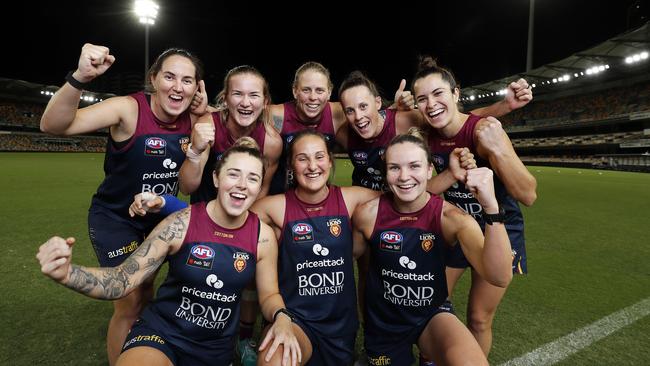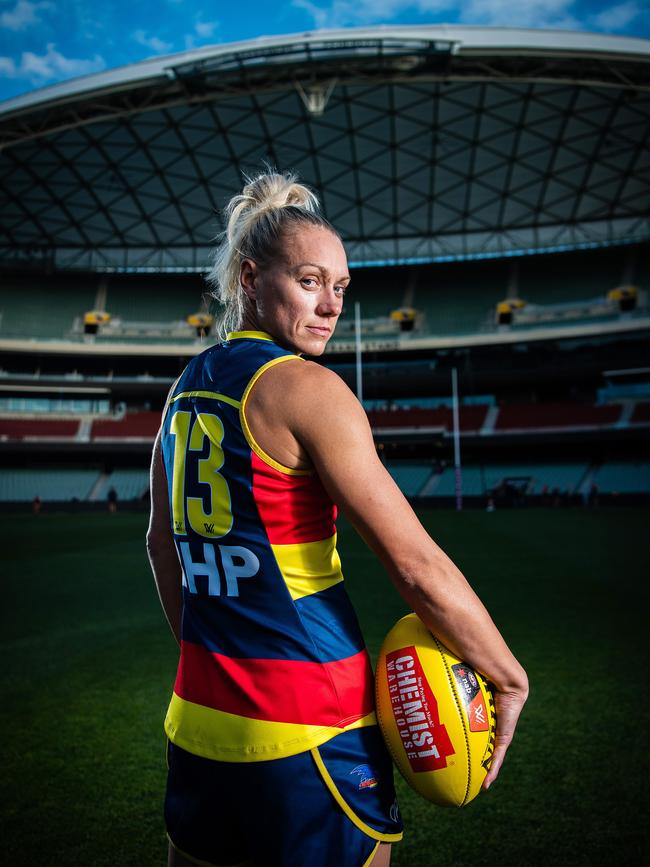Call for business to go further in backing sport

The relationship between sport and business has come a long way since those days. It’s a billion-dollar connection and some of the biggest deals in corporate Australia are done with sports administrators in the room. Sponsorship deals keep elite sport afloat and having their name on a footy player’s shorts keeps businesses in the game.
More importantly, as Eric Johnston, business editor of The Australian, puts it, “it’s all about the networking”.
Sporting fields — or at least, the corporate boxes overlooking them — are where corporate and political heavy hitters meet. And in a relaxed atmosphere, with a beer and a party pie in hand, the dealmaking begins. The nation’s biggest, most high-powered gathering of the great and the good of sport, business and politics each year is the AFL commission lunch in the MCG’s Olympic Room at the grand final.
Who knows how many corporate takeovers, political hatchet jobs or billion-dollar infrastructure projects had their genesis in a halftime conversation at the grannie. Of course, it’s no surprise that business, the engine that drives the nation, and sport, such a significant part of the Australian psyche, are so intrinsically entwined.
Tony Shepherd, a man with a foot in both camps, describes sport as “our national religion”. “It is what binds us together and has a deep impact on who we are as Australians,” says Shepherd, corporate leader, former president of the Business Council of Australia and chairman of Venues NSW and the GWS Giants.

That being the case, Shepherd is among an increasing number of sport and business leaders who see the opportunity to take the relationship beyond corporate boxes and sponsorship dollars. Business clearly has much to learn from what happens on the footy field or the cricket pitch, and there are lessons for sport in the boardroom and the factory floor. In sport, it’s all about winning. Margins between success and failure are minuscule, 1 per cent factors can be the difference between making the finals and collecting the wooden spoon. Winning or losing a tournament can hang on a single moment. Just as in business. In business, success or failure hangs on holding your nerve in high-stress situations, and huge benefits await those who spot an opportunity and take advantage of it. Just as in sport.
But Daryl Adair, associate professor of sport management in the UTS Business School, emphases the differences between sport and business — and that’s where he sees the opportunities for something more. “One of the things that large businesses do well is provide their staff with professional development opportunities that allow for career pathway planning,” Adair says.
“Businesses invest in these human resources because they add value to the company. Staff emotionally invested in the company have a vision for the future.
“Sport is different. The prime value of an athlete is their physical capital — what they can do on the field by way of athleticism. The average career lifespan of an AFL or NRL player is about 2.5 years. A few have 20 years on the playing field but most barely make a ripple in terms of their aspirations for a professional athlete career.”
This, says Adair, is a psychologically confronting scenario that leaves many elite athletes struggling to come to terms with life after a sporting career ends. Businesses prepared to go further than simply handing over the sponsorship cash have an opportunity to make a real difference.
‘Having their name on a footy player’s shorts keeps businesses in the game’
“Let’s imagine an athlete who had five years in sport. Enough for a public profile and reputation,” he says. “Now, let’s also imagine that a sponsor company is seeking to leverage its involvement in sport beyond the logo and advertisements. A retired athlete, with a suitable reputation and skill set, could be a significant asset. This means a plan to identify athletes with post-sport potential and training them in order to have authentic skills needed for a career in the company.”
It would be a win-win, he believes. Athletes would get a pathway to life after sport in the world of business and companies — aside from picking up a valuable employee — would get a more tangible connection with the league or club and the opportunity to leverage it.
Shepherd believes the benefits of extending the relationship between business and sport lie in learning deeper lessons.
“In elite sport there is a self-appraisal and an honesty that we claim to have in business but we often only talk about it,” he says. “If you come off the field after a tough game there is a 360 degree review down to the last detail. They set standards and benchmarks they expect to be met and they look at their performance with great honesty. These athletes have the sort of self-discipline, perseverance and resilience that business could learn a great deal from. On the other hand, if you look at the most successful sports organisations, they are run along business lines.”
Shepherd also believes business has a social responsibility to be more deeply involved in the sporting community.
“As business recognises the importance of social responsibility, the relationship with sport is becoming more important,” he says. “Of course, there is a marketing element to it, but in many cases it is almost altruistic — business sees involvement with sport as a way of making a contribution. When the Giants announced we would have a team in the AFLW, the first two calls I got were from Katie Page (Harvey Norman CEO) and Kerrie Mather (Venues NSW boss and former Sydney Airport CEO) and they both said the same thing — congratulations and we’ll support you however we can.”
Adair imagines that sort of support going well beyond corporate branding and networking. “Imagine if there were a critical mass of big sponsors who were committed not only to athletes as physical beings, but athletes as a whole person — with value beyond the playing field,” he says. “Imagine athletes looking at their peers going on to roles within companies after their time in sport. This would provide a new type of role model for athletes and start to embed the reality that sportspeople have a long life cycle in the workforce but a brief time in sport.”



There was a time, according to legend, when the Rothmans offices in Sydney contained a handful of desks where the dust settled gently and very little else took place. A phone, a lamp, a blotter, perhaps a couple of neatly organised pens. There they sat, and no one came near them. These desks, allegedly, were the work stations of Wallabies. This was a time, remember, when there was no irony in a tight corporate relationship between a tobacco company and a sporting organisation. Many rugby careers were played out as full-time employees of Rothmans or other such companies. At a time when the sport was notionally amateur, the footballers received an income, football clubs were able to train their players almost full-time and the companies got to make a contribution to sport. Attendance at the office was not required.